
Do you have what you need to make your garden grow?


Garden Center
Store Hours
Mon-Sat:
6:00am - 10:00pm
Sun:
8:00am - 8:00pm
Curbside:
09:00am - 6:00pm
Location
Popular at Your Garden Center
Spring Garden Supplies
Explore Popular Spring Plants
Garden Project Calculators
;Resize=(703,395.44))
Grass Seed Calculator
When you're ready to seed your lawn, our calculator helps you estimate the amount of grass seed you'll need to get the job done.
;Resize=(703,395.44))
Mulch Calculator
Enter your preferred material, the square footage and mulch depth of the coverage space for accurate results.
;Resize=(703,395.44))
Fencing Calculator
We'll calculate the amount of fencing you should purchase based on your property needs.
Shop Outdoor and Garden Brands
Frequently Asked Questions About Gardening
How do I know what planting zone I'm in?
Check the USDA planting zone map, as planting zones have shifted over the years. Zones with higher numbers can plant earlier in the year. Choose plants that are meant for your zone and increase your odds of successful gardening.
Is it ok to plant seeds outside in the spring?
If the soil isn't frozen or cold, consider planting your flower, veggie, or fruit seeds directly into your garden. This is called the "direct sow" method. Plant after the threat of frost is gone for the season, as seedlings and sprouts can't weather those conditions. You can also start your seeds indoors if you'd like. Consult your seed package for how and when to sow seeds.
Do you carry organic plants and seeds?
Yes, we've got a variety of organic options, including organic fruit seeds and veggie seeds, as well as organic herb and flower seeds that are subject to availability. We also carry the organic fertilizer to feed your plants and the organic soil to plant them in.
Do I have to harden off my seedlings before planting them outside?
Yes, for best results, if you raised plants indoors from seeds in your own plant nursery, harden them before you transplant them. Hardening is the process of getting them used to the great outdoors. It slows their growth until they're strong and ready to take off during a spring warm front. Hardening also makes your plants more resilient to a sudden cold snap. Speak to a garden center associate or read your seed packets for more information.
How do I plant a transplant or baby plant?
Squeeze the plastic around the plant to loosen the soil. Gently coax your transplant and the surrounding clod of dirt out into the palm of your hand, then place it into the hole you dug for it. Make sure the top of your transplant's soil is even with the garden soil, and carefully press the earth into place. Avoid mounding a volcano of dirt around your plant, and don't pack the ground too tightly. Your plant baby needs to breathe.
Should I use peat moss starters or coir starters?
Seed starters, full of nutrients in convenient pellets or pots, work for new and experienced gardeners. You don't have to use these starters if you're planting in soil, but you may want to. Starting seeds in peat pots works best for delicately rooted plants like cucumbers and eggplant, as well as flowers that need acidic soil. Some people prefer coir starters instead, as they have a neutral pH. Check what type of soil your plants need to help narrow it down, and chat with a garden center associate if you need more info.
Garden Project Ideas
The Home Depot Garden Center at Preston Hwy
Save More During Our Spring Deals Sale
Our incredible spring sale is back, so prepare to save. Beautiful weather makes it easy to savor the spring air, and new tools help take care of that to-do list. Don't forget to upgrade your outdoor power equipment to keep your lawn and garden pristine. Get great Spring Deals from April 24th through May 7th, and enjoy your outdoor oasis as your garden and yard transform with the seasons.
Set Up For Springtime
It's time to start thinking of spring. Sweep out the gazebo and clean the shed to prepare for fragrant breezes, sprouts poking up, and warmer temperatures. Planting seeds indoors means you'll be ready to transplant young veggie plants and spring annuals when the frosts are through and the ground thaws. You might even want to plant organic seeds directly into the earth. What better way to start than by exploring your favorite local plant nursery, The Home Depot Preston Hwy Garden Center?
Plant Hardiness Zones Explained
The first thing you should know when planting spring flowers, veggies, and other seeds is your planting zone. Every location in the U.S. and its territories is sorted into blocks by climate. Find your zone on the USDA plant hardiness zone map and learn when to plant seeds.
For example, you could plant bell pepper seedlings outdoors in mid-March in Zone 10, but not until the end of May in Zone 4. You'll have good results with plants that have your zone number or less. In other words, a Zone 7 garden can support plants listed as Zones 1–7. You can plant seeds indoors roughly a month before you can plant them outside, known as direct sow. Always read your seed packet for details. If you start them a little later than recommended, it's not ideal, but it will even out as time passes.
Gardening in Your Growing Zone
Virginia, West Virginia, Kentucky, and Tennessee are in Zones 6–8. Cruciferous veggies and certain herbs are ready to grow when you're ready to plant. This includes broccoli, kale, and cabbage. Greens like spinach and artichokes, early-blooming annuals like marigolds, and fragrant herbs, including oregano, basil, and parsley, also don't mind an early beginning. Even in the highest peaks of West Virginia in Zone 5b, traditional garden vegetables like peppers of all kinds, cucumbers, and tomatoes are fine with an early spring or late winter start indoors under the grow lights.
Look up the date of your last predicted frost, then count backward 6 to 8 weeks. That's when you should sow your seeds indoors. The idea is to have strong baby plants that are ready for transplant at the same time the ground is warm enough. Do your best and enjoy the process — watching your plants grow, bloom, and put out tiny veggies that'll grow to harvest size is part of the fun.
Plant Seeds Outside With Direct Sow
Planting seeds into your garden soil, or using the direct sow method, is an alternative option. It doesn't give you as much organized planning in terms of space and reliability as starting indoors. However, if you like to go with the flow, follow the instructions on your seed packet and give it a try.
Prepare to deal with whatever hand nature deals you: Be ready for none of your seeds to sprout, all of them to come up, and anything in between. Your seedlings will need to survive rain, wind, and sudden cold snaps, as well as insects and rodents that crave tender greens. But if you're lucky, you'll get strong sprouts that are ready to grow all spring.
Start Seeds Indoors
If you'd like more control over your seedlings' journey or you're eager to get growing, start your seeds indoors in your own plant nursery. In general, you can plant seeds indoors about a month before you can do it outside. Like direct sow, you push the seeds into the soil as directed on the seed packet, but that's where the similarities end.
You're responsible for giving them quality substitutes for sunlight and rain. Keep your seeds cozy with warming mats and grow lights, water them carefully with a spray bottle or watering can, then thin them as they germinate in groups of three. Give them a boost with a gently blowing fan as they lengthen into sprouts if you'd like. Harden them off to get them used to outdoor conditions, then transplant them into your garden when they're big enough.
Transplant Young Plants Into Their New Homes
When your plants have three or four real leaves — different from mini seedling leaves — transplant them. In quality soil, dig a hole that's the same size as the dirt plug where your transplant has been growing. If your ground soil isn't great, dig a slightly bigger hole and fill the extra room with nutrient-rich topsoil. Apply any fertilizer as directed on the package, either in the hole or on top of the soil after it's planted. Only apply as much as recommended, as you could burn the plant and kill it instead of helping it along.
Protect Your Garden With Mulch
Finish your flower bed with mulch and compost. Compost enriches the soil so your garden can grow even better. It may help foster stronger plants that bear more flowers and fruit. Mulch keeps your soil from drying out and controls weeds. Compost and mulch can be purchased in-store or created at home. The next time you're looking for "mulch near me," stop by the Garden Center to get the perfect amount.
Greet the Spring
Late winter into early spring is an exciting time in the world of gardening. Prepare to fertilize your lawn, plan your garden and landscaping, and browse The Home Depot nursery to find inspiration on what to plant when the weather warms. For those without lawns, consider adding artificial grass, an outdoor rug, or a pellet grill to your patio or balcony. Shop for the fertilizer, seeds, and soil you need in the aisles of your Preston Hwy Garden Center, online, or on our mobile app. Let's get growing together.
Nearby Stores
Find Another Store
964 Breckenridge Ln
Louisville, KY 40207
7.40 mi
Mon-Sat: 6:00am - 10:00pm
Sun: 8:00am - 8:00pm
2600 S Hurstbourne Pkwy
Louisville, KY 40220
7.50 mi
Mon-Sat: 6:00am - 10:00pm
Sun: 8:00am - 8:00pm
6840 Dixie Hwy
Louisville, KY 40258
8.47 mi
Mon-Sat: 6:00am - 10:00pm
Sun: 8:00am - 8:00pm
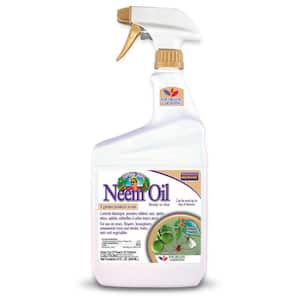
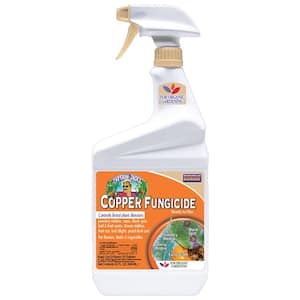
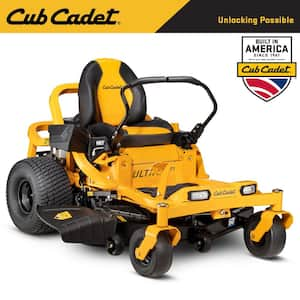

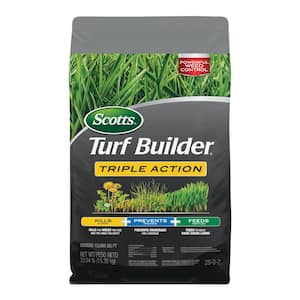
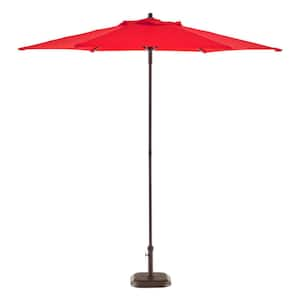
)
)
;Resize=(300,300))
)
)
/2023_P2_Rain_Barrels_Product%20Image%20(square).jpg?im=Resize=(300,300))
)
;Resize=(300,300))
)
;Resize=(300,300))
;Resize=(300,300))
;Resize=(300,300))
)
;Resize=(300,300))
/12_SOIL_B_0420_Social%20media%20(square).jpg?im=Resize=(300,300))
;Resize=(300,300))
;Resize=(300,300))
)
)
)
;Resize=(300,300))
;Resize=(300,300))
;Resize=(300,300))
;Resize=(300,300))
;Resize=(300,300))
)
;Resize=(300,300))
/18Patio_Camden_Seagrass_5pcSeating_Planters_302468736_DTL3_L_Social%20media%20(square).jpg?im=Resize=(300,300))
;Resize=(300,300))
;Resize=(300,300))
;Resize=(300,300))
;Resize=(300,300))
;Resize=(300,300))
)
)
)
.jpeg?im=Crop,rect=(363.69230769230774,1.2307692307692308,958.7692307692308,958.7692307692308);Resize=(300,300))
;Resize=(300,300))
;Resize=(300,300))
;Resize=(300,300))
)
)
;Resize=(300,300))
;Resize=(300,300))
;Resize=(300,300))
)
;Resize=(300,300))
)
)
)
)
;Resize=(300,300))
;Resize=(300,300))
)
;Resize=(300,300))
)
)
/Capello_Spring_Mum_10in_Social%20media%20(square).jpg?im=Resize=(300,300))
;Resize=(300,300))
)
)
;Resize=(300,300))
;Resize=(300,300))
)
)
)
)
)
;Resize=(300,300))
;Resize=(300,300))
;Resize=(300,300))











































